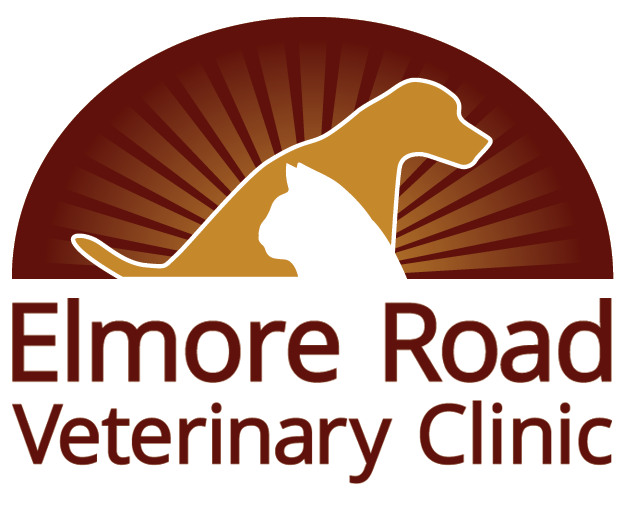Answers to Your Questions About COVID-19 and Your Pet
As communities around the world respond to the new coronavirus (i.e., COVID-19) threat, you need the most up-to-date information to keep your family and your pet safe. Rather than turning to social media and reading speculation and opinions, keep current with facts and research with the information presented by the following websites:
- World Health Organization (WHO)
- Centers for Disease Control and Prevention (CDC)
- American Veterinary Medical Association (AVMA)
- World Organization for Animal Health (OIE)
Since there is so much information, and still much unknown about COVID-19 and how it affects people and their pets, we answer the most common questions about this pandemic.
Question: What is a coronavirus?
Answer: Coronaviruses are a large family of viruses that commonly infect people and animals. Most coronavirus strains are species-specific, but some are zoonotic and can be transmitted between species. In humans, several coronaviruses cause respiratory infections, ranging in severity from the common cold to SARS, which can cause more severe problems, such as fever, chills, headache, and muscle aches.
Q: What causes COVID-19?
A: COVID-19 is a new strain of coronavirus that has been shown to infect people, causing a fever, cough, tiredness, nasal congestion, runny nose, and sore throat. Rarely, animal viruses can infect people, and then continue to be spread through person-to-person contact. COVID-19 is one of these rare cases. Similar to SARS and MERS, COVID-19 had its origins in bats, but has since mutated to form a human strain.
Q: Can’t pets get coronaviruses?
A: Yes, pets can contract their own species-specific coronavirus strains. The common feline coronavirus causes mild diarrhea, but, in rare cases, can mutate and cause feline infectious peritonitis. In dogs, there are two common forms. The enteric form causes diarrhea similar to the feline coronavirus, but is generally self-limiting. The respiratory form of canine coronavirus has been associated with some kennel cough cases, but is not linked to COVID-19.
Q: How does COVID-19 spread?
A: COVID-19 appears to spread most easily through person-to-person contact, such as when an infected person sneezes or coughs, and a healthy person nearby comes in contact with the mucus or saliva droplets. Coronaviruses can also be transmitted through indirect contact with contaminated surfaces, but that appears to be a secondary route for COVID-19.
Q: Can I get COVID-19 from my pet or vice versa?
A: As of now, the CDC, WHO, and OIE agree that pets do not appear to be a source of COVID-19 infection. Pets who live with infected people may carry the virus on their fur, but the possibility that you will contract the disease through contact with a pet is low, and pets do not appear to be affected by this coronavirus strain.
Q: Wasn’t a dog tested positive in Hong Kong?
A: Yes, a dog living with a sick person tested a weak positive for COVID-19. The test cannot determine whether the virus particles were intact and infectious, or fragments and not contagious, but shows only that the particles existed in the dog. While in quarantine, the dog showed no illness signs, and further testing will be performed.
Q: What should I do if my dog is coughing?
A: If your pet is showing signs of illness after exposure to a person infected with COVID-19, contact us immediately.
Q: Can I still take care of my pet if I’m sick?
A: While there has been no evidence of transmission from people to their pets, or reports of illness in pets, the CDC recommends restricting contact with pets or other animals if you are sick with COVID-19, until more information is known about the virus. If possible, have another household member care for your pet if you are sick, and avoid hugging, kissing, or sharing food with your pet. If you must be around animals while you are sick, wash your hands before and after handling, and wear a facemask.
Q: What can I do to protect my pet and my family from COVID-19?
A: The two main keys to protecting your family from COVID-19 are practicing appropriate hygiene, and staying home when possible. Wash your hands frequently with soap and water for at least 20 seconds, avoid touching your face, and avoid unnecessary trips to public places.
Q: What should I do if my pet needs veterinary care?
A: Contact us if your pet is ill or injured. We can triage the situation to determine if your pet needs immediate care, or if her condition can be managed at home. We recommend rescheduling wellness visits and elective procedures, such as spay and neuter surgeries, to help us conserve personal protection resources and medications in this time of crisis. But, if your pet needs medical care because of an illness or injury, we will continue to provide our high standard of care.
As the COVID-19 situation changes rapidly, our protocols may also change. Always call our clinic before heading out to pick up medication, or for an appointment, in case our availability or staffing has changed.

